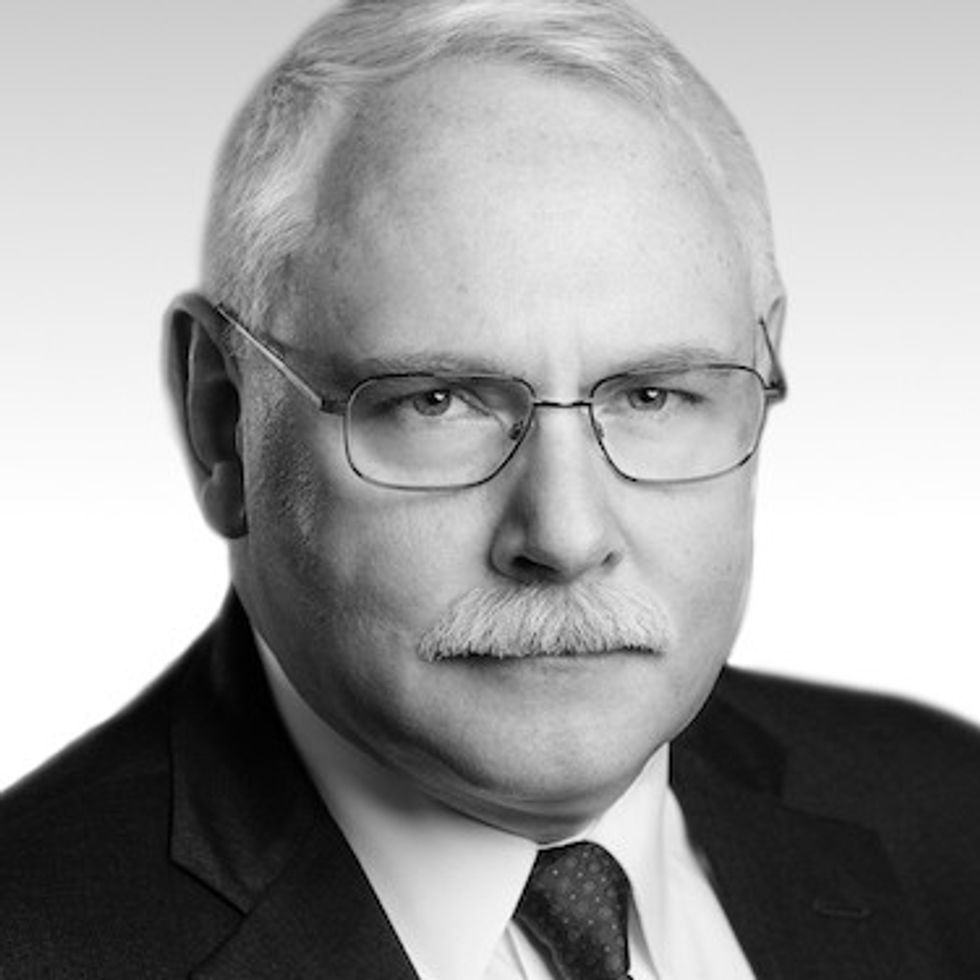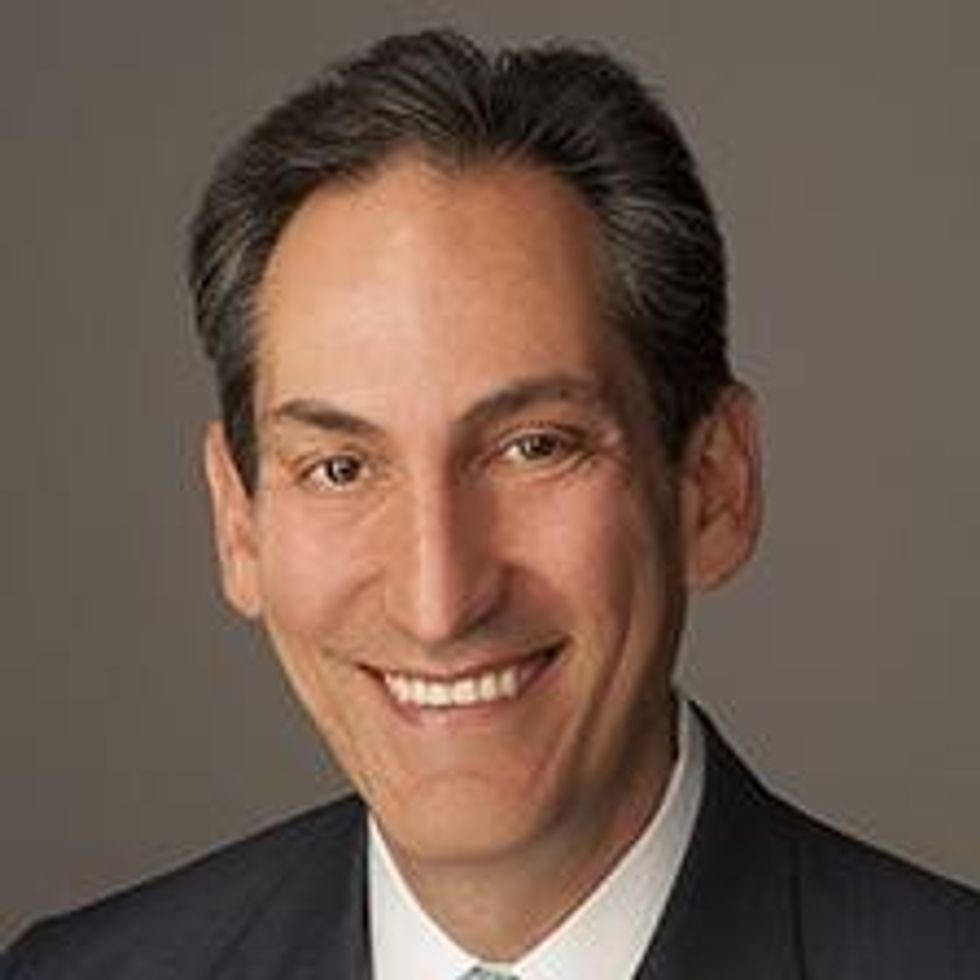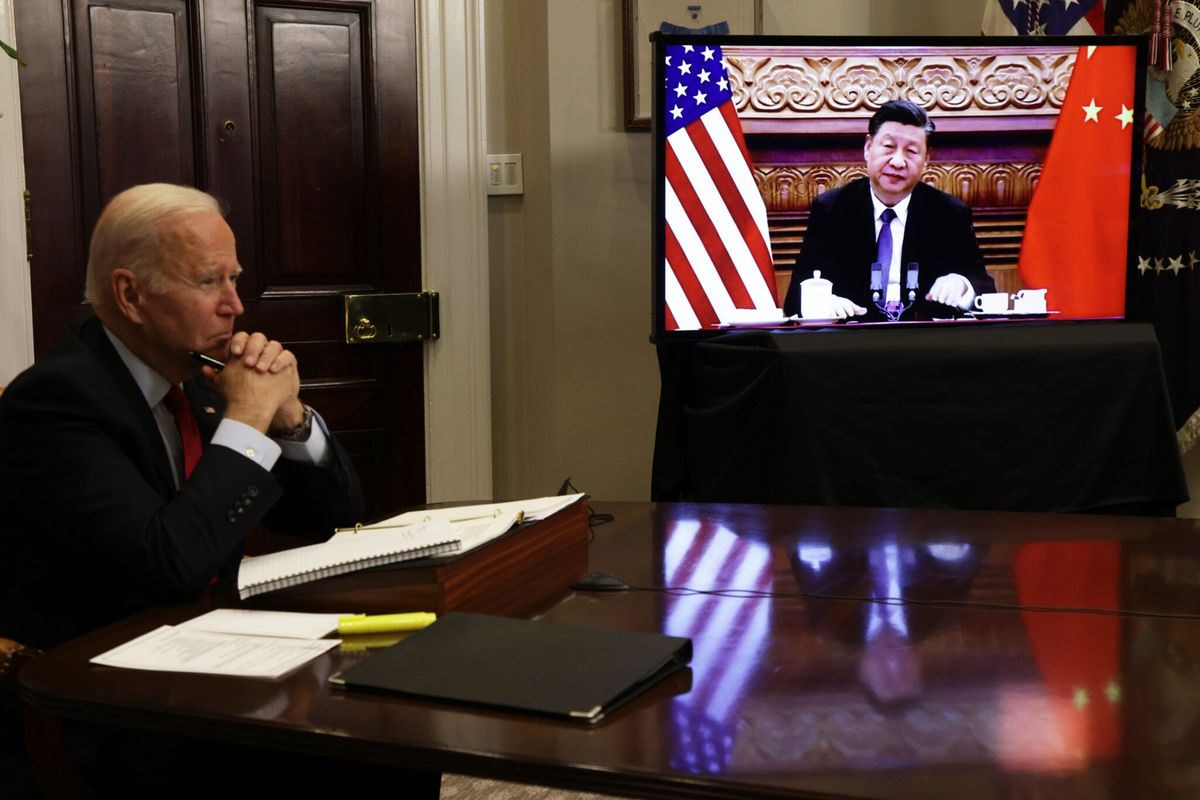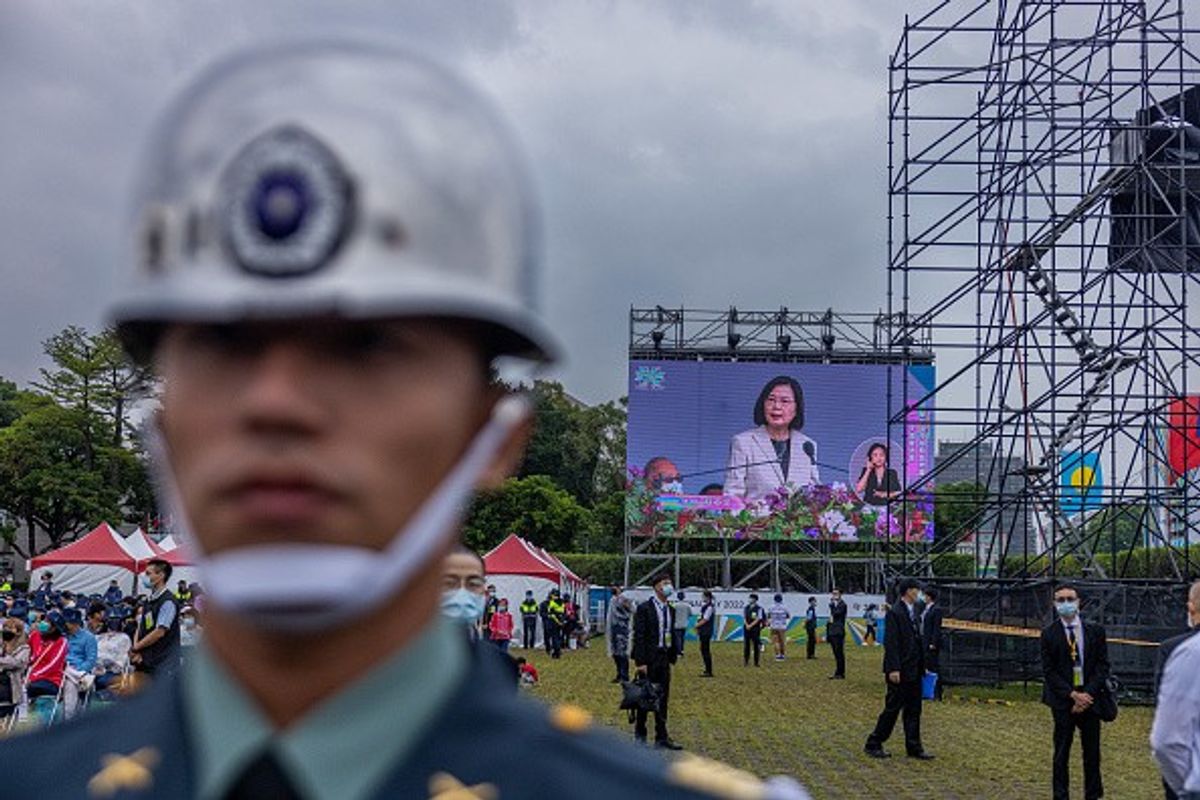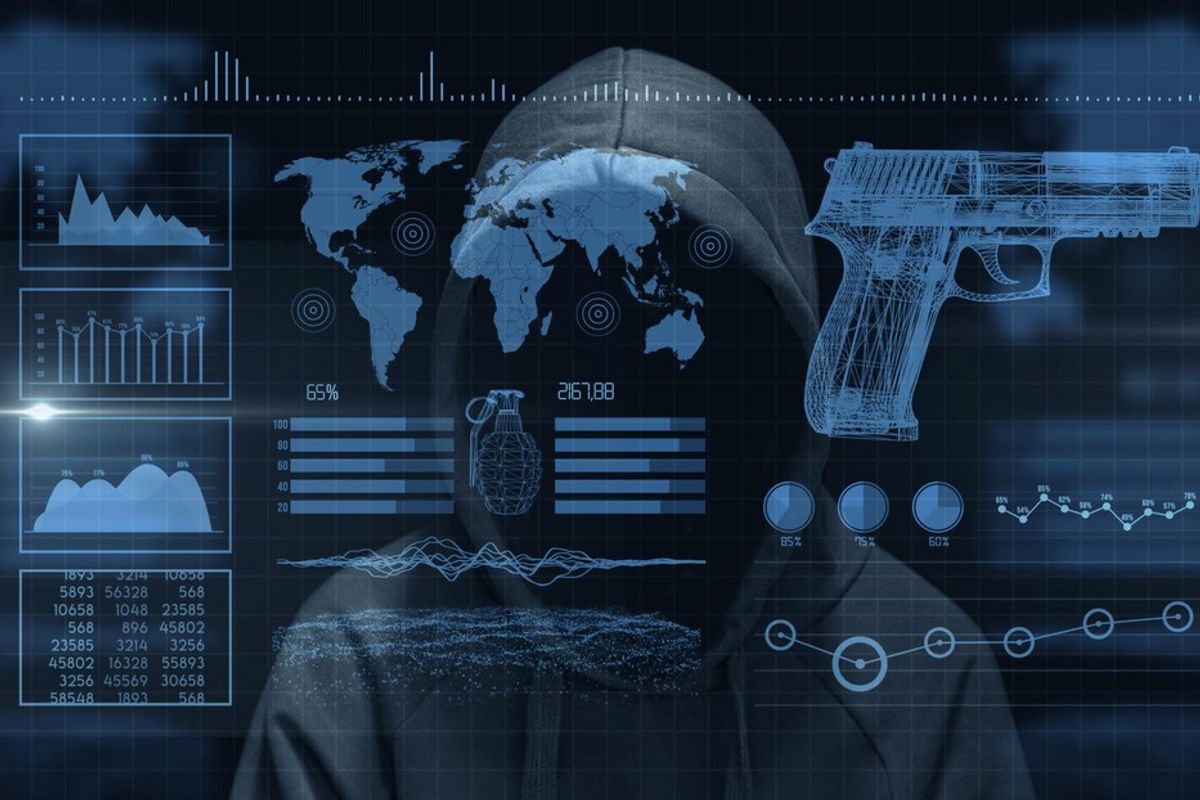EXPERT PERSPECTIVE — The EU may be losing confidence in the prospect of a new nuclear agreement with Iran. The Iran nuclear deal, known as the Joint Comprehensive Plan of Action (JCPOA) seems to have been inching closer over the past few weeks, but EU chief diplomat Josep Borrell, who has been managing indirect talks between the U.S. and Iran, said Monday that “The positions [of the two countries] are not closer . . . If the process does not converge, then the whole process is in danger.”
Borrell did not specify the issues that have dimmed progress toward an agreement, but media reporting points to a growing gap over the status of IAEA monitoring of Iran’s nuclear program, and Iran’s demands for U.S. guarantees that sanctions relief will continue even if the deal is subsequently disrupted.
The Cipher Brief tapped several experts including Cipher Brief and energy expert Norm Roule, Cipher Brief Expert Ambassador Gary Grappo and CSIS Middle East Program Director Jon Alterman, all of whom have been closely monitoring negotiations since they resumed more than a year ago. Here’s what they told us about what’s at stake and the prospects going forward.
Norman T. Roule, Cipher Brief Expert, former National Intelligence Manager for Iran (NIM-I), ODNI
Norman Roule served for 34-years in the Central Intelligence Agency, managing numerous programs relating to Iran and the Middle East. He served as the National Intelligence Manager for Iran (NIM-I) at the Office of the Director of National Intelligence from November 2008 until September 2017. As NIM-I, he was the principal Intelligence Community (IC) official responsible for overseeing all aspects of national intelligence policy and activities related to Iran, to include IC engagement on Iran issues with senior policy makers in the National Security Council and the Department of State.
Ambassador Gary Grappo, Cipher Brief Expert, former U.S. Ambassador to Oman
Ambassador Gary Grappo served as envoy and head of mission of the Office of the Quartet Representative, the Honorable Tony Blair, in Jerusalem, as U.S. ambassador to the Sultanate of Oman, Charge d’Affaires and Deputy Chief of Mission of the U.S. Embassy in Riyadh, Kingdom of Saudi Arabia, and Minister Counselor for Political Affairs at the U.S. Embassy in Baghdad, Iraq. He is currently a Distinguished Fellow at the Center for Middle East Studies at the Korbel School for International Studies, University of Denver.
Jon B. Alterman, Zbigniew Brzezinski Chair in Global Security and Geostrategy and director of the Middle East Program, CSIS
Jon B. Alterman is a senior vice president, holds the Zbigniew Brzezinski Chair in Global Security and Geostrategy, and is director of the Middle East Program at the Center for Strategic and International Studies (CSIS). Prior to joining CSIS in 2002, he served as a member of the Policy Planning Staff at the U.S. Department of State and as a special assistant to the assistant secretary of state for Near Eastern affairs, and from 2009-2019 he served as a member of the Chief of Naval Operations Executive Panel.
The Cipher Brief: What would absolutely need to be in this deal to make it worthwhile for the West?
Roule: Diplomacy regarding Iran is always extraordinarily difficult. Wherever you stand on the nuclear deal, we need to show respect for all of our diplomatic and foreign service colleagues who are working on this issue in a variety of countries, which are also included in the negotiations themselves, because it's going to be impossible to come up with a deal that satisfies everyone and will satisfy all of our Iran concerns. It may even be that there is no such thing as a 'good deal'. It will be very subjective, based on who you are. I think the answer to the question of “will we have a deal in the near term?” is — possibly. It's entirely dependent upon Iran. Many US and EU policy makers are willing to return to the deal in its original construct. It is Iran which continues to place demands or to place obstacles to seek additional concessions. I think what is certain is that we are about to have a highly-partisan and heated debate on the deal.
I think what really is needed in the deal is the post-deal because in 2015, the international community failed because it did not use the time that the deal gave to come up with a comprehensive Iran policy to address other issues that complicate Iran. And this rapidly became a religion of JCPOA and the cardinals of that religion had the advocacy of, "Its JCPOA or war," and no other issue fit into that construct. So the question is - whether there is a deal, or no deal, what is our policy as an international community - of which the United States is a member - of moving forward, to address such issues as the hostage-taking of Americans and other nationals; terrorist attempts made under diplomacy on US soil this year; and hundreds of missiles and drones fired at almost exclusively civilian targets?
It’s important because I think if you were to ask me, "Will Iran build a nuclear weapon in the next 12 months?" I would say almost certainly not. But if you were to ask me, "Will Iran undertake activity that will almost certainly kill men, women and children, if successful," I would say, absolutely. So we need this broader plan. The deal, wherever it goes or doesn't go, will be of interest to its proponents or adversaries, but we do ourselves a great disservice by not talking about what happens next and we should not assume that a deal will make it any easier to undertake follow-on discussions with Iran.
Grappo: I will be looking for what becomes of the time horizons, i.e., the sunset provisions of the restrictions imposed on the Iranian nuclear program. Simply settling with those previous horizons isn’t practical in my view, and would be very problematic with both sides in Congress, our allies in the region, especially Israel, or the American people.
The schedule of the sanctions relief will also be very important. One broad lifting would not be wise. We should look to see whether it is gradual, timed with action on the Iranians’ part vis-à-vis downsizing their nuclear program.
And since around 2019, the Iranians have greatly exceeded the levels of enrichment, i.e., 3.67 percent, and amounts of enriched uranium that were allowed under the previous deal. What happens to all of that enriched uranium and how much will they be permitted under a new agreement?
The Cipher Brief: There is an ongoing investigation, and a very controversial one, between the IAEA and Iran. Is it possible for the IAEA and Iran to come to closure on that investigation? If not, what is that going to mean for this deal?
Roule: It's very important. The problem for the IAEA is if it has an agreement with Iran and Iran is obeying its IAEA requirements, the agency needs to understand the locations of radioactive material in country and the associated equipment, and perhaps even some of the personnel.
So how is this likely to play out in coming months? First, there is no evidence whatsoever that Iran will cooperate with the IAEA. There's plenty of evidence that it won't. There is some evidence that there is growing pressure within the IAEA board of governors to criticize Iran, which they've been very reluctant to do. There is an IAEA board of governors meeting September 14th and what this will mean is Iran is likely to delay talks until it can be assured that that meeting will not push the IAEA to do a major censure or even to refer Iran to the UN Security Council. I think if a deal were to go forward, you would probably see an expectation written into the language that Iran will cooperate with the IAEA in the first two to four months of the deal being rolled out.
Iran is not going to cooperate. But nonetheless, that expectation will be like every other pressure on Iran — something that we try to kick the can down on the road to work — and it will not stop the deal itself from rolling out. The problem is this puts Rafael Grossi, the head of the IAEA, under enormous and unprecedented political pressure. It's really unfair to the fellow because in essence, it's now on his shoulders. Does he live up to IAEA responsibilities and risk the nuclear deal? Does he forego those responsibilities and risk other countries, in essence, ignoring the IAEA as well? That would be catastrophic for the nonproliferation world. It's going to be a difficult time for the IAEA in coming months, but I'm not sure that this alone would derail a restoration of the Joint Comprehensive Plan of Action.
Grappo: Guaranteed, secured and thorough “anytime, anywhere” monitoring by IAEA is an absolute sine qua non. There shouldn’t be any areas “off limits” as was the case under the 2015 agreement. This really is a case of “Trust but verify.” (And speaking personally, my trust level regarding Iran is very low.) I suspect we may not get all we want here but it will have to be very close to be credible.
It’s hard to truly grasp what’s in the minds of the Iranian decision makers, especially [Iran’s Supreme Leader] Ali Khamenei. If we believe what’s being reported now by the media, they’ve drawn a firm line here. However, I believe much of what we’re hearing whether from Iran, Israel or elsewhere is geared toward one or more domestic audiences. Even here in the U.S., domestic politics seems to be driving the commentary. The administration is saying virtually nothing about what might actually be in a new agreement. I should think that the Biden administration has learned the lessons of the Obama administration here. Therefore, I’d be surprised if they try to impose constraints on the IAEA doing its job. It would be very bad political optics as we approach the mid-term elections. They’re smart enough to figure that out, certainly.
Alterman: I would expect significant tensions in the coming months between Iran and the IAEA as implementation proceeds, and we may not reach an agreement that either side is fully compliant with its obligations. To many on each side, substantial Iranian compliance and substantial U.S. sanctions relief is a better circumstance than we are in currently, even if it doesn’t represent “success.”
The Cipher Brief: How might the Biden administration respond to domestic and foreign critics of a deal, and what assurances or protections might the U.S. offer to assuage worries of an eventual Iranian nuclear weapon?
Roule: The Biden administration has consistently stated that it will not allow Iran to develop a nuclear weapon. President Biden, as then candidate Biden, made this statement publicly and has reiterated this consistently. Where I think there is a concern is that the narrative of Europe and the United States is that an Iran with a nuclear weapon makes every other problem in the region tougher. Okay, that's true. But, how did Iran get a nuclear weapon if our military option is on the table? How exactly do they develop a military weaponization program, which would take months to execute, that we would then have tolerated? That we and the IAEA would've missed? How would we talk through endless diplomacy and allow them to build that nuclear weapon or several? So I think there's a bit vulnerability in some of the statements on this issue.
In order for the Biden administration to show that it is committed to this plan, it would have to maintain a robust military support program to our partners in the region, particularly Israel, which is under routine existential threats by Iran. It would also have to maintain robust intelligence and international cooperation to make sure we understand what is going in Iran and make sure that this doesn't appear to be an issue that we just drop as we move on.
Grappo: It’s all in the agreement. If experts as well as the inexpert cannot read the new agreement and conclude that this is better than no action at all, then it will be in trouble. Some of the issues I mention above are just a few of the critical areas of concern. In general, everyone – Americans, Europeans, Israelis and our Arab friends and allies – want to be reasonably sure that Iran will not have nuclear weapons for a very long time. That means pushing out those sunset provisions, reducing the numbers of advanced centrifuges, very strict and intrusive inspections unconstrained by the Iranians. And again, that we do not let up on sanctions until Iranian compliance is confirmed.
Alterman: No one has any illusions that this represents a genuine turning point in U.S.-Iranian relations. Each side deeply suspects the intentions of the other, each side is skeptical the other will comply, each is keenly aware that a new administration could take a markedly different approach to the agreement in two years’ time, and all are aware that the sunset provisions start taking effect in 2025. The Biden administration will continue to engage with Iranian behavior on a range of nuclear and non-nuclear issues, partly through diplomatic exchanges with Iran, its neighbors, and allies and partners. It will also continue to act robustly in the security and intelligence realm, sometimes in coordination with others.
The Cipher Brief: What are the repercussions should the JCPOA not be renewed?
Grappo: I think the Administration and the Europeans can make a good case that they tried everything possible consistent with our own interests and concerns. This negotiation has been going on for more than a year and much leeway has been given to Iran with its recent election and government change to come to an acceptable agreement. If they cannot accept it, then the concerned countries – some of those I have mentioned and others – will have to come together to determine next steps to contain Iran’s nuclear weapons program and ensure they are unable to threaten anyone. That too will be a major challenge, which we should not diminish. We also need to come to grips with a rather dismal prospect that Iran forges ahead on weapons development, and military action may be necessary. The stakes are extremely high.
Alterman: For the United States, the challenge is continuing to deter an Iranian government that is both creative and unafraid of brinkmanship. For Iran, the challenge is supporting an increasingly fraying economy without significant sanctions relief. Both governments have an interest in diminishing tensions to a degree, even if a substantial improvement in relations remains impossible.
Cipher Brief Senior Editor Ken Hughes contributed to this report
Engage with the Experts. The Future of Iranian - US relations is on the Agenda for The Cipher Brief Threat Conference October 9-11. Apply for your seat at the table today.
Read more expert-driven national security insights, perspective and analysis in The Cipher Brief





